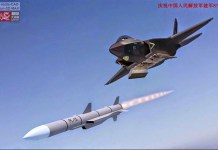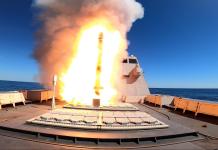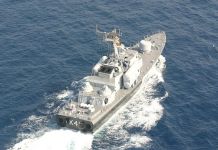The recent explosion at Natanz nuclear facility in Iran has set back its nuclear program by more than a year. Natanz nuclear facility was used for enriching uranium and was vital to Iran’s nuclear program and its destruction is being viewed as a major setback for Tehran.
India or China: Whom Did Israel Support During The Intense India-China Border Standoff?
As reported by EurAsian Times last week, a fire broke out at the Natanz nuclear facility last Thursday. Iran claims it was a cyberattack possibly orchestrated by Israel or the US and has vowed to retaliate against the perpetrators.
Writing for The Hill, Simon Henderson, a veteran researcher, a fellow at the Washington Institute for Near East Policy, believes that the explosion at Natanz has put the facility out of commission, and the Islamic Republic probably doesn’t have an alternative to manufacture the advanced centrifuges.
This has set back Iran’s nuclear program for months if not years. Intelligence sources from other countries have also drawn similar conclusions and cite a setback of one or two years.
Tehran has alleged that Israel was behind the attack but so far Israel has remained silent. When quizzed about Israel being behind the attacks in Iran, Prime Minister Benyamin Netanyahu ignored a question on the matter at a press conference while Defense Minister Benny Gantz said that Israel was not necessarily behind every incident in the region.
Why Is India Buying More Russian Jets Instead Of ‘Highly-Competent’ Rafale Aircraft?
Netanyahu had considered attacking the facility for years using airpower but had not done so out of fear of damaging ties with the US and opening up a battlefront with Tehran. The planned attack was shelved after Iran signed the Joint Comprehensive Plan of Action (JCPOA) in 2015 much to the delight of the Obama Administration.
Change in the US Administration
With the departure of Barack Obama and the introduction of pro-Israel Donald Trump at the White House, Israel found a roundabout solution to the problem in light of Iran’s renewed progress with its nuclear program. Instead of an aerial assault with a low signature, there was a mysterious explosion occurred, and the chain of command behind it is not entirely clear.
According to intelligence sources in the Middle East, the explosion in Natanz was not the result of a cyberattack, but a bomb that was smuggled into the facility. The damage caused is the same as it would have been with an aerial strike, but the price to pay is much lower. With no clear indication of who or what led to the bombing, Iran has no grounds or an enemy to retaliate against.
Chinese Military Base In The Pacific Near Australia Could Be A Nightmare For The US & Allies
Writing for Haaretz, Amos Harel says that the explosion in Natanz was the key event in a series of explosions and fires that occurred in Iran over the course of a week, a mysterious series of incidents in which, according to reports, a missile production facility, a clinic, a factory and a power station were hit in various and distant points within the country.
While there is no connection between the attacks, the resounding nature of their sequence is exerting pressure on Iran to respond. Iran is suffering economically thanks to the sanctions imposed by Donald Trump and the low oil prices due to the coronavirus.
The morale of the ever-ready The Islamic Revolutionary Guard Corps (IRGC) is also at the lowest level after the assassination of Revolutionary Guard chief General Qassem Soleimani in Baghdad in January.
According to the former head of Military Intelligence, Maj. Gen.Amos Yadlin, Tehran’s only possible option of retaliation are cyberattacks. Conventional attack using rockets and missiles are impossible after an alleged Israeli strike destroyed Iranian weapons stockpiles.
Other options such as carrying out sophisticated drone attacks such as the ones against Saudi Arabia are unlikely due to Tel Aviv’s preparedness to deter such attacks.
Tehran cannot count on Hezbollah’s support from Lebanon as an economic crisis has plunged the country into chaos and military friction with Israel seems like the last thing that Hezbollah Secretary-General Hassan Nasrallah needs or wants.
The annexation of West Bank by Israel was supposed to increase tensions in the Middle East, but instead, only regional temperatures continue to rise. This is happening because of the tension between Israel and Iran, with an unprecedented economic crisis in Lebanon in the background.





